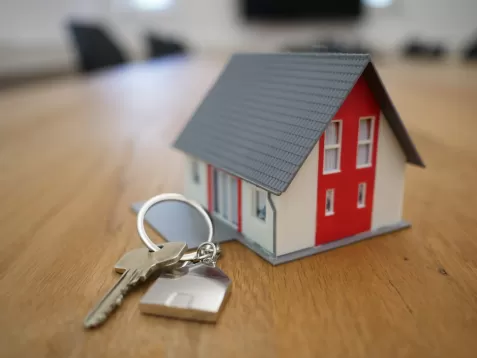How much is a home worth? Well, it depends on who you ask. Sellers have one opinion, while buyers have another. If you’re financing a home sale, the only opinion that matters is that of the appraiser, as they’re who influences how much a lender is willing to lend.
What Does An Appraiser Do?
Before a mortgage company can determine how much money they’ll lend you to buy the home, they need an objective third party to tell them how much the home is worth. But not just any objective third party, it has to be that of a certified appraiser. And in order to become certified, real estate appraisers must have earned a bachelor’s or associate degree related to accounting, business administration, economics, finance or real estate; and worked in the field under a supervisor for two years.
“The appraiser does a full analysis of the home and compares it to similar homes that have sold in the neighborhood to assess its value,” explains John Roussel, branch manager for iServe Residential Lending in Reno.
The appraisal process typically takes about two weeks between applying for the home loan, scheduling the appointment, the appraisal itself, reporting findings and a lender review. The cost is typically between $300 and $600 and the fee can be folded into the buyer’s closing costs. In the event a deal falls through, the buyer is still on the hook for the cost of the appraisal.
Better.com shares the breakdown of what goes into the appraiser’s calculations:
- Size and floorplan: The size of the home, including square footage, the number of bedrooms, and the flow of the floorplan.
- Exterior condition: The overall structure, including construction quality and the condition of the foundation, roof and exterior, as well as the yard or other property surrounding the house.
- Interior condition: This includes fixture appliances, such as the refrigerator and washer/dryer, heating and air conditioning system, and other design upgrades and amenities.
- Renovations and upgrades: If any additions or modifications have been made, they must comply with local building codes.
- Surrounding area: Neighborhoods and school zones can influence the value of your home. Other factors can include crime rate, proximity to busy roads, and nearby amenities.
- Recent sales: Comparable sales (referred to as “comps”) of similar properties in the surrounding area help determine the appraised home’s value.
Roussel says the best way for a seller to increase the appraised value of their home is by adding on additional square footage in the form of an addition or doing a remodel of the kitchen or bathroom. He explains that the appraisal is three-fourths math and one-fourth opinion, so things like new flooring or paint could also affect the opinion of the appraiser.
“If the house has been updated, that’s certainly going to affect the one-fourth opinion value,” he says. “The nicer the house looks, the higher the appraised value should be.”
The Appraisal Gap
Unfortunately, one of the things appraisers do not take into account is how much homes in the neighborhood are selling for right now. And in a crazy seller’s market like Nevada is experiencing, the difference between those numbers and your appraisal value can be a big number.
“In a super-heated market like this one, the comparable sales haven’t closed yet, so they can’t be used to establish the value of the home,” Roussel explains.
He sees this cycle continuing for most of this year, with a possible slowdown toward the end of 2021.
“At some point, people will stop paying over value and that will erase the gap,” he says.
Related: Navigating A Seller’s Market
Motivated buyers will need to come up with the difference to cover the appraisal gap. One way to do this is through the Home Is Possible down program, as that money can be used for down payment or closing costs, allowing buyers to use their savings to cover the appraisal gap.
If you’re ready to buy a home of your own, visit homeispossiblenv.org to learn more about what programs you might qualify for that can stretch your homebuying dollar. Then choose a HIP-qualified agent or lender, who can advise you on your next steps. Home is possible, even in a market like this!


